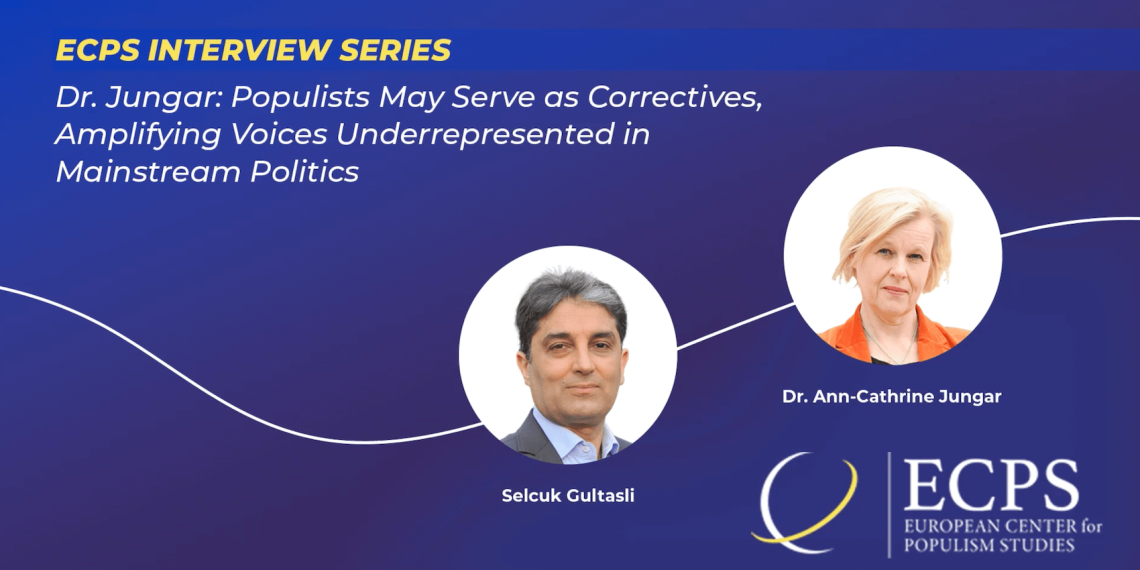Emphasizing that populist parties act as platforms for citizens with more critical perspectives, Professor Ann-Cathrine Jungar argues that these parties can serve as correctives for democracies, amplifying voices underrepresented in mainstream politics, even though not all their proposals may receive universal endorsement. While acknowledging that some supporters of populist parties may hold xenophobic views, she highlights the importance of distinguishing between exclusionary and inclusionary populism. Dr. Jungar notes that populist radical right parties typically fall into the exclusionary category due to their critical stance towards liberal democracy.
Interview by Selcuk Gultasli
In an exclusive interview with the European Center for Populism Studies (ECPS), Dr. Ann-Cathrine Jungar, Associate Professor of Political Science at Södertörn University in Stockholm, explores the intricate dynamics of populism in the Nordic region, focusing on Sweden and the rise of the Sweden Democrats. Dr. Jungar delves into the nuanced nature of populism, distinguishing between exclusionary and inclusionary forms, and highlighting the role populist parties play in amplifying the voices of citizens with critical perspectives.
Dr. Jungar argues that while populist parties, such as the Sweden Democrats, may garner support from individuals with xenophobic views, their voter base is diverse, and these parties can act as correctives in mainstream politics. She emphasizes the importance of understanding the distinctions between different populist movements, particularly in the context of radical right parties that often adopt a critical stance towards liberal democracy.
The interview addresses the specific case of the Sweden Democrats and their journey from isolation to becoming a significant force in Swedish politics. Dr. Jungar provides insights into the failures of the "cordon sanitaire" strategy, examining the complexities of government formation, shifting party dynamics, and the impact of the 2015 migration crisis on mainstream parties’ positions.
Furthermore, Dr. Jungar reflects on her upcoming book, which focuses on the Nordic radical right, tracing the historical development of populist movements in the region. She explores the ideological shifts within these parties, their approach to migration, and the impact of changing voter perspectives on the political landscape.
The discussion extends to the Finns Party in Finland, analyzing its performance in the presidential elections and its evolving positions on NATO membership and foreign policy. Dr. Jungar provides a nuanced assessment, considering the party’s role in Finnish politics and the implications of its leader’s background marked by hate speech convictions.
Dr. Jungar also shares her perspective on the global decline of democracy and the potential challenges facing Sweden’s democratic system. While acknowledging concerns about the populist right, she assesses the current state of democracy in Sweden, highlighting the enduring support for democratic values in the Nordic states.
The interview concludes with a discussion on the influence of right-wing radical parties in the European Parliament, anticipating their impact on decision-making processes and collaborations. Dr. Jungar also offers insights into the potential challenges arising from global political collaboration among right-wing radical parties, particularly in the context of the potential return of Donald Trump to power.


